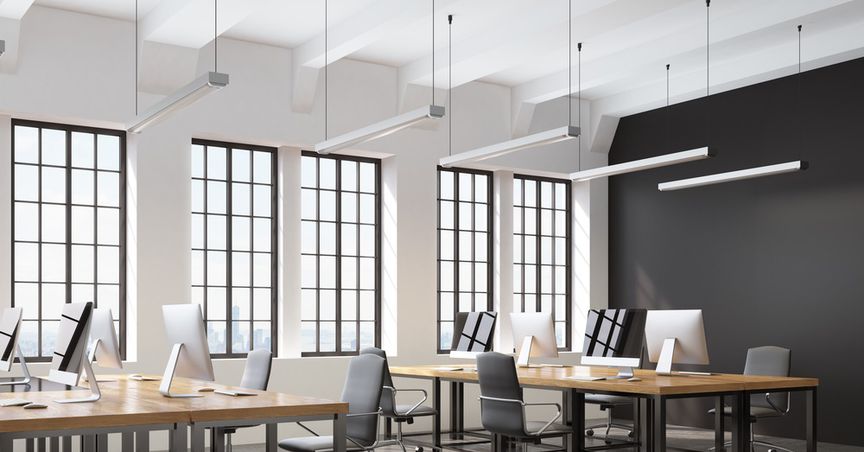Summary
- Safety equipment and modification to office spaces could cost companies millions of pounds to make office spaces safe enough to encourage employees to come back.
- Being able to work remotely is making many employees reluctant to join back office and take the risk of being infected.
- Several high-profile business districts in the UK like Canary Wharf have been witnessing very poor employee turnout even after months have passed since the government allowed the offices to be opened.
Most of the companies in the United Kingdom who employ a large number of office workers are now facing a tough task to prompt people to come back to offices. The lingering threat of infection is the major reason that is preventing people from coming out of their homes, on which not much progress seems to be happening as the number of new infections continues to exist on a daily basis across the nation.
Installing hi-tech equipment, changing office layouts, and several other modifications are being undertaken by employers to reassure employees of their health safety. These measures are, however, costing the companies a fortune, sometimes as high as one to two per cent of their total capital cost. During these testing times, when many businesses are facing massive revenue crunch, having to foot such massive cost is definitely a challenging task. Nevertheless, many of the companies are footing this bill in order to fully open up their businesses, so that they could ramp up their turnovers and avoid further losses that are being sustained since March 2020.
The cost of extra precautions
Pandemic proofing is an expensive exercise as is being discovered by various employers across the United Kingdom. Touchless entry systems, special air purifiers, desk dividers, and a host of other equipment that promise to make the office environment safe for workers who wish to join back, do not come cheap. Though none of it guarantees an absolute protection against the infection, the employers are mainly trying to address employee fears more than fighting the pandemic itself through these measures.
While elsewhere in the country the spread of Covid-19 infection has started to moderate, but the risk of a single infection of an employee forcing a lockdown of the entire office is also a risk high on the minds of employers when they are contemplating such expenses.
Though the government has recommended several safety measures for workplace safety, many of the building owners and companies are taking extra measures to make offices safe for the incumbents. Genesis, a company which has lent out office space to some of the big names like, Accenture, Siemens, and Society Generali has drawn up and implemented a list of 100 safety measures which it believes will become an industry standard and is also encouraging others to implement the same. However, in its own admission, these measures cost anywhere between one to two per cent of its initial capital outlay.
Most of the other landlords in the country are unwilling to make such a large capital outlay and are looking at other cheaper options. Among other large office space owners in the United Kingdom; Canary Warf has spent nearly £250,000 in making one of its offices for 500 people secure and has implemented a number of other measures across its properties to improve their health safety standards.
Working from home: which industries have benefited?
Work from home arrangement has helped most of those businesses who have a large portion of their revenues emanating from people working out of their offices. Businesses like banks, IT and software firms, e-commerce portals, financial services companies, media houses, and a host of such businesses fall in this category.
During the initial days of the pandemic, most of these companies took steps to migrate their work to employee houses so that the safety aspect could be addressed adequately. Over the past five months, most of these employees have been working from their homes comfortably and are now unwilling to take the risk of catching a Covid-19 infection when they have been able to avoid it for so long now.
Most of these industries have continued to function through the lockdown but many at a significantly reduced scale of operations. Now when the business activity is picking up across the country, these businesses also need to scale up and attract back their employees to the workplaces.
Also Read: Companies Should Devise A Plan To Counter Second Wave Of Infections: Alert From The PM
Also Read: Apple's Stock Market Value Tops $2 Trillion- Which FTSE 100 Tech Stock Can Lead the UK Market?
Could this cost be avoided if companies waited for the vaccine
However, there are questions that are being raised in people’s minds regarding the urgency of opening these offices. The vaccine for the pandemic coming out of the Oxford University Jenner institute is around the corner and given the success it has achieved so far in clinical trials; it is likely that it will reduce the threat of spreading the deadly disease to a large extent. Therefore, in the hindsight, if British companies waited for a couple of months, they might have saved millions of pounds on the expenditure they are currently undertaking.
There are, however, a lot of ifs and buts attached to this reasoning. For instance, the actual effectiveness of the vaccine can only be known at least many weeks after the mass inoculation has taken place. Moreover, companies have to evaluate the cost and benefit of not opening now and waiting for a few months and whether this will in any way ensure that all employees will be willing to join back work later.
Finally, the most critical factor for most companies is the loss of business opportunities, which they may be facing due to the shortage of staff at their offices, and it may not be worthwhile to wait under such circumstances as these opportunities might not actually come back.
Also Read: Three Unique Investment Tips to Build Recession-Proof Portfolio in COVID-19 Crisis
Outlook
Enhanced safety measures are required to be implemented at working spaces, whether a vaccine comes now or sometime later. The coronavirus pandemic will continue to torment the human race for a while even after the inoculation process gets initiated. Further, the international situation on the inoculation front could be different as compared to the United Kingdom, and businesses might pick up faster internationally than it will within the country, and the companies in the UK are probably mindful of that.




